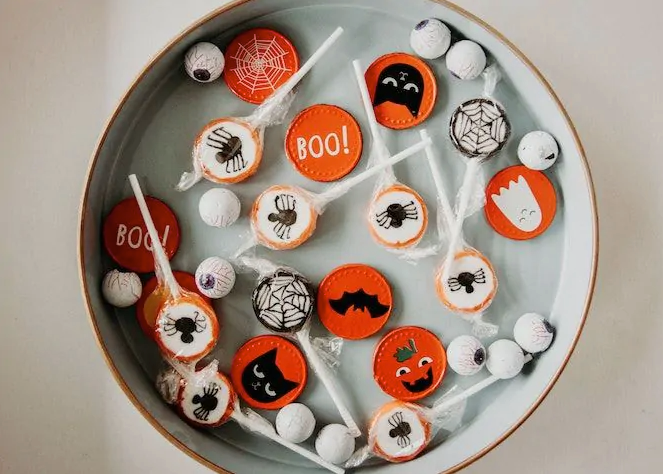Indulging in sweets is undoubtedly a highlight of the festivities, but be mindful of its potential to disrupt your child’s sleep.
We’re going to delve into seven reasons why indulging in Halloween candy might be spoiling your child’s peaceful night’s sleep.
The Highs and Lows of Sugar A bowl brimming with Halloween candy Sweets are notorious for their high sugar content.
The burst of energy they provide might seem innocuous at first, but it can swiftly turn into an energy slump, complicating the process of calming your child down at night.
This sugar-induced high and low can interfere with their internal clock, leading to sleep disturbances.
Interference with Melatonin Production Melatonin, known as the conductor of the body’s sleep orchestra, is produced by the brain’s pineal gland. It orchestrates our sleep patterns, signaling when it’s time to power down or rise and shine.
However, melatonin’s effectiveness can be hampered by dietary choices, particularly sugar. Consuming too much sugar, especially in the evening, can hinder melatonin’s role.
A surge in energy from a sweet snack is often followed by a nosedive, leaving children tossing and turning instead of sleeping.
The Excitement in Ingredients Keep in mind that it’s not just sugar; many Halloween treats also pack in caffeine and other energizing substances.
For instance, chocolate has a compound called theobromine, a natural stimulant that can quicken the heartbeat and alertness. It’s a fleeting boost for the system.
When you combine this with the Halloween festivities, it can be a mix that invites sleepless nights.

Tummy Troubles from Too Many Treats A youngster grappling with stomach pain A spree of consuming too many sweet and decadent goodies can stir up some serious stomach issues.
A prevalent outcome of excessive candy consumption is acid reflux, a condition where stomach acid reverses course, creeping back into the esophagus. This results in a fiery sensation in the chest and throat.
This discomfort is often magnified when one reclines to rest, resembling the panic of breathlessness, akin to being submerged in water, as the reflux hampers normal breathing.
The repercussions of a sugar binge don’t stop there. Digestive disturbances such as diarrhea or its opposite, constipation, can significantly interfere with uninterrupted sleep.

Nutritional Imbalance from Halloween Candy Halloween candy, despite its appeal, is infamous for its lack of substantial nutrients and abundance of empty calories.
“Empty calories” refer to foods that provide a rapid surge of energy without delivering significant nutritional value.
Such nutritionally void calories can disrupt the body’s balance of nutrients. Vital nutrients, including vitamins, minerals, and antioxidants, are essential for sound sleep.
Neglecting nutritious meals in favor of junk food can have a negative impact on your health and impair your sleep quality.
The Anxiety of Sweets For some youngsters, particularly those with sugar sensitivities or dietary restrictions, the abundance of Halloween candy can cause increased anxiety.
An excess of sugar can induce feelings of restlessness and nervousness in children, making unwinding a challenge.
Children with dietary constraints may feel anxious amidst the plethora of Halloween treats, fearing accidental consumption of something harmful.
This anxiety can deter them from fully engaging in Halloween activities.
However, there are effective strategies available to alleviate these anxious feelings.
Routine Disruption Maintaining a consistent bedtime routine is crucial for children. It signals to them that it’s time to wind down for the night.
This routine could involve a bath, teeth brushing (vital after candy!), reading, or listening to soothing music.
Excessive consumption of Halloween candy can interrupt this routine. Late-night sugar consumption can lead to hyperactivity and disrupt the bedtime ritual.
Frequent late nights can upset their biological clock, leading to sleep troubles and next-day tiredness, which is especially problematic on school days.

Absolutely, the allure of Halloween candy is undeniable, and it plays a big role in the fun of the holiday. Yet, it’s important to be mindful of the impact it can have on your child’s sleep patterns.
Finding a middle ground between enjoying the festivities and maintaining a healthy lifestyle is essential. Encourage your child to enjoy their Halloween haul earlier rather than later in the day, and keep an eye on how it fits into their daily nutritional intake.
Consider establishing some guidelines for sweet consumption, particularly in the evenings, to prevent any sugar-induced sleep disruptions. This way, your child can still partake in the Halloween fun without compromising a good night’s rest.

